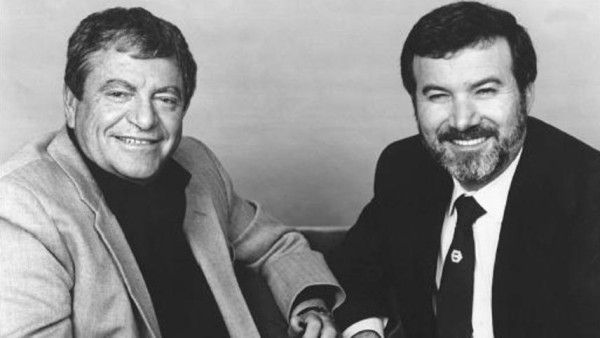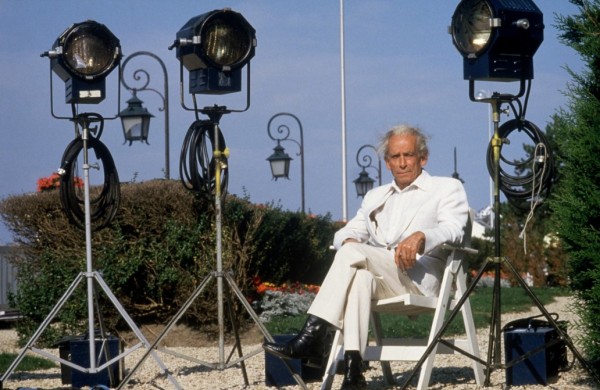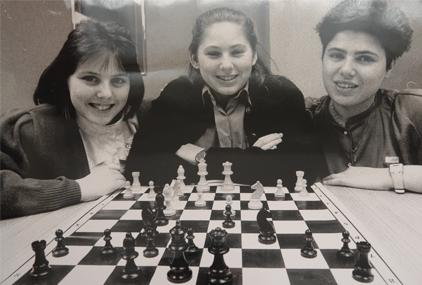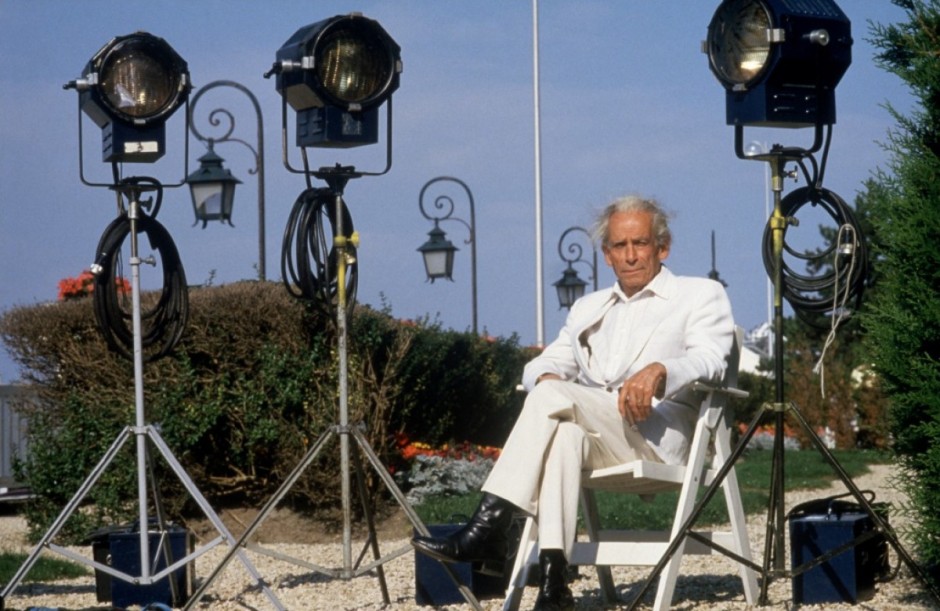The 10-day Toronto Jewish Film Festival starts on April 30, featuring a wide selection of movies from North America, Israel and the rest of the world.
A preview:
“They were the Israeli Hollywood,” says the film director Boaz Davidson.
First cousins Menahem Golan and Yoram Globus were the founders and prime movers of the Cannon Group, the movie production company they founded in Los Angeles the 1980s.
The pair, the first Israelis to become major players in the Hollywood film industry, are profiled in Hilla Medalia’s The Go Go Boys, a comprehensive documentary charting their rise and fall. At the height of their power, Newsweek magazine placed them on its cover and described them as “the go go boys,” a reference to their indefatigable energy.
In the mid-1980s, when they were riding high and seemed like an irresistible force, Golan and Globus churned out movies like Blood Sport and American Ninja, employed actors such as Charles Bronson, Chuck Norris, Jean-Claude Van Dam and Sylvester Stallone and bought movie theater chains in Europe.
Not bad for two guys who arrived in Los Angeles with $500 in their pockets.

Golan, who died last year, was probably Israel’s most famous movie mogul, having directed Eldorado (his first film), Sallah Shabtai (nominated for an Academy Award in the foreign film category), I Love You Rosa and Kazablan. Though hardly masterpieces, they were hugely entertaining movies that broke Israeli box office records.
Globus, 14 years younger than Golan, was a 50/50 partner in Noah Films. His task was to raise funds and basically keep the ship afloat, a job he performed in stellar fashion. They were like a well-oiled machine, working seamlessly and harmoniously. “They completed each other’s sentences,” Golan’s son says. “They couldn’t do without each other,” his daughter observes.
Having reached a glass ceiling in Israel, they went to Los Angeles. Due to Israeli currency regulations, they were permitted to take only $500 out of the country. They lived very frugally, eschewing the ostentatious lifestyle of their American peers. Turning out low-budget shlock films like New Year’s Evil and The Apple, they seemed destined to remain bottom feeders. But with Breakin,’ which cost $1.2 million to make and raked in a cool $56 million, Golan and Globus broke through to stardom.
Cranking out what critics demeaned as “exploitation” films, they earned a fortune in just a few short years. At one juncture, their movies accounted for 20 percent of the gross in the American film market. Less well known is the fact that Golan and Globus also financed European art movies. Nonetheless, critic Gene Siskel was far from impressed, relegating them to the status of “deal makers” rather than “filmmakers.”
Being insanely busy, neither Golan nor Globus reserved quality time for their respective families. As absente husbands and fathers, they reaped the whirlwind.
Their winning streak ended because their formula, which was based on volume rather than quality, did not ultimately work. Their films lost money and soon they were in debt to the tune of $200 million. Globus, unable or unwilling to control Golan’s wild spending habits, severed his business ties with him. “We divorced,” says Globus, who became a major Hollywood figure in his own right.
A scandal toppled Globus from his perch, however, and he returned to Israel, where he founded a movie production studio. Golan went back to Israel, too, becoming an independent producer and director.
Medalia tells the story of their bumpy odyssey exceedingly well.
***
Samuel Fuller (1912-1997) was a something of a Renaissance Man despite his limited education. He was a crime reporter in New York City and and Francisco. He wrote the pulp novels Burn Baby, Burn and The Dark Page. He was a soldier in the U.S. infabtry in World War II. He directed films running the gamut from Scandal Sheet and Street of No Return to Park Row and The Big Red One.

By any measure, he was an interesting man, and his daughter Samantha’s biopic, A Fuller Life, reflects his diverse passions. The film is based on Fuller’s hard-boiled memoirs, excerpts of which are read by a succession of actors, and on scenes from his movies. Fuller’s home movies are also incorporated into this absorbing documentary.
Raised by his mother in New York City, Fuller sold newspapers on street corners, worked as a copy boy and broke into reporting in the late 1920s. His mother thought he was wasting his time, but he found the newspaper business scintillating. Having quit his job because he could no longer bear witnessing executions, he travelled around the country as a freelance writer.
When a magazine story he had written on the Ku Klux Klan was severely cut because one of the details seemed implausible, he complained. The editor asked if he could produce a photograph to back up his claim. He couldn’t. From that point forward, Fuller always carried a camera, convinced that photographs were better conveyors of human emotions than words.
Dipping his feet into Hollywood’s “seductive waters,” Fuller took up screen writing. He considered Hollywood a way station en route to an illustrious career in journalism.
With the Japanese attack on Pearl Harbor, Fuller joined the army. To him, World War II was “the biggest crime story of the century.” Fuller survived amphibious landings in North Africa, Italy and France, quickly learning that an infantryman returns from battle either wounded or crazy. Neither of these calamities befell him.
To Fuller, war was nothing less than “organized insanity.” After killing an enemy soldier in combat, he noted in his journal that he had become a “killing machine.” In Czechoslovakia, he was horrified by the sights in Falkenau, a Nazi concentration camp. But in Falkenau, he made his first film, using a Bell & Howell camera his mother had sent him. Fuller was Jewish, but in this deracinated film, he utters not a single word about his Jewishness or the Holocaust.
Thanks to a producer who had faith in his abilities, Fuller directed his first feature film, I Shot Jessie James, in 1949. He proceeded to sign a six-picture deal with the mogul Daryl Zanuck. He should have been happy, but Fuller found the “artistic climate” in Hollywood stifling. He considered himself an outsider and a dyed-in-the-wool democrat, and in a Fuller Life, he expresses gratification that he was one of the first directors to hire African American actors for intelligent roles.
While his daughter’s film immerses a viewer in his career as a director, it leaves much of his personal life unexplored. And so he remains something of a cipher.
***
The Polgar sisters of Hungary, Susan, Judit and Sofia, are extraordinary chess players. They’ve won international tournaments and beaten champions like Garry Kasparov and Anatoly Karpov. In the annals of chess, they’re unique.
The Polgar Variant, a workmanlike film directed by Yossi Aviram, examines their lives and achievements.

Working on the assumption that genius is learned rather than acquired, their parents, Laszlo and Klara, home schooled their three daughters, training them to be chess prodigies. They were subjected to a rigorous regimen, and when Laszlo could no longer teach them anything new, he hired trainers to upgrade their skills. The girls cooperated beautifully and achieved the exalted rank of grandmaster.
But as the film suggests, there was a price to pay. The girls were more or less insulated from the world. “They had no childhood from the point of view of a normal person,” says a Russian chess whiz who helped coach them.
During the communist era, the Hungarian government exerted pressure on the Polgars to enroll their children in a regular school, a demand that Laszlo resisted. In response, the Hungarian Chess Federation left Susan, Judit and Sofia off the national team. Reinstated for the 1988 Olympic Games, the girls performed brilliantly. With the fall of communism, they were free to travel without restrictions.
The film charts their evolution from adolescence to adulthood, concluding that Judit was the best player while Sofia was the most gifted one. All three sisters are married today, living in different countries. As The Polgar Variant suggests, their international renown precedes them wherever they travel.

